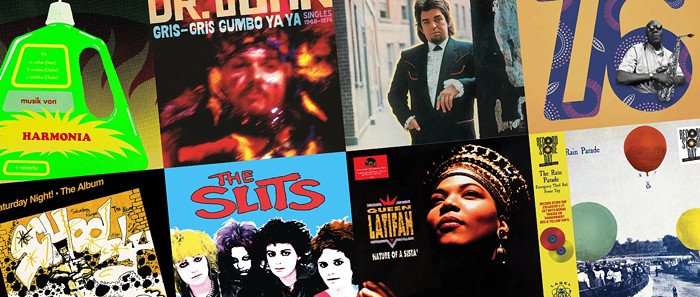Only two albums in and the Lupe Fiasco apologists are already stepping up. With the release of The Cool, newly minted die-hard fans are leaning over critics' shoulders and clearing off a throne for the 25-year-old MC, brushing aside obvious shortcomings to make way for more obvious assets. Tellingly, Lupe himself is the most vocal apologist of all: "Lord please have sympathy/and forgive my cool young history/ as the coolest nigga," he rhymes on "The Coolest."
Since 2006's stunning debut, Food & Liquor, Lupe's trademark has been his intellectual self-awareness. He goes fully meta on The Cool and leaves his first-person perspective behind almost entirely. "The Coolest" is one of several songs that flesh out the album's loose concept—a personification of the Game and the Streets as characters in a fantasy romance/struggle, pursuing the elusive, pervasive cred of the title.
It's vast and abstract, touching on all the trend spotting, myth busting, wealth hoarding, and confidence building that The Cool implies. Thematically, musically, the album flouts hiphop conventions, impressive for such a young artist with major-label backing. This insistent and natural creativity—a third-generation sense of hiphop's history and potential—is what Lupe's backers point to. His detractors point to the same strong-headedness: When he shrugged off the importance of A Tribe Called Quest this past fall, he invited scorn from one part of the hiphop community, while other fans admired his defiance.
Lupe has stated plainly that after his next album, LupEND, he'll retire. (Believe that when you see it.) With only one more statement to make before the supposed curtain call, The Cool asks a lot of faith from listeners, standing as the crucial second act of the grand performance piece known as Lupe Fiasco. It's a risky move for the young, still-unproven artist born Wasalu Muhammad Jaco, one who would feel contrived if The Cool weren't one of the most nuanced, intelligent, infectious records of 2007.
Even radio-ready insta-classic "Superstar" leans toward the profound. Lupe—with Buckley-esque singer Matthew Santos on the anthemic chorus—addresses everyman listeners and their everyday aspirations as much as his own certified stardom: "If you are what you say you are/a superstar/then have no fear." That universalism—unachievable for ego-inflated MCs—comes naturally to Lupe. The song is flawless.
Along with Lupe's primary collaborator, fellow Chicago MC Gemstones, Santos shows up all over The Cool. "Streets on Fire" bumps over a classic drum break and turntable scratches and is laden with strings; the spiritual minimalism of "Fighters" courses over a keyboard run and Lupe's deeply personal flow. Santos's chorus is especially potent:
When the fighters are all around/All the lovers are underground/No one will save you anymore/So what's happening, what you rapping about?/Little boy/Is it cars? Is it girls? Is it money? The world?
Santos steps into his 15 minutes with grace. The fauxhawked warbler has gone from Chicago coffee-shop gigs to national attention as Lupe's white-boy soul-singing accessory. He's part of a trend toward soft-edged indieness launched by Jay-Z and Chris Martin, perpetuated by Kanye and Adam Levine of Maroon 5. It's okay to hate on the crossover, but it's useless to hate on the result. This is the new hiphop, and soft is the new hard, mass-appeal the new underground. Santos fits into the role like a foot into a $400 sneaker.
Other tracks outside the concept storyline are just as cerebral as those within it—Lupe as child soldier ("Little Weapon") and Lupe as cheeseburger ("Gotta Eat"). Thanks to understated metaphor, not to mention innovative production by Fall Out Boy's Patrick Stump on the former and longtime Lupe cohort Soundtrakk on the latter, both are far better than they should be. There's plenty of instrumental adornment—heavy strings, acoustic guitar, Arabic ululations, and Gothic chants. While not as glossy as Kanye's recent output, the production is exceedingly musical, melodic—pop hiphop for sure. Again, you can rue the mass appeal, but there's no use in disparaging the songs themselves. Pop doesn't get any smarter, and smart doesn't get any catchier.
Yes, Lupe self-aggrandizes ("Paris, Tokyo," "Go Baby"), but he remains earnest and likable, the lucky kid rather than the self-absorbed star. Yes, he settles for several forgettable choruses ("Go Go Gadget Flow," "Dumb It Down"), but these come between wicked-smart, tongue-twisting verses in songs that buck hiphop formula in content and construction. Chalk up another Lupe apologist; all of us join the throng willingly. Lupe is on his way to achieving all his promise—changing the face of hiphop. The standards he's measured against are higher than the rest. ![]()


















